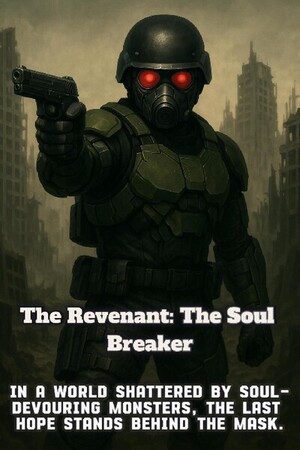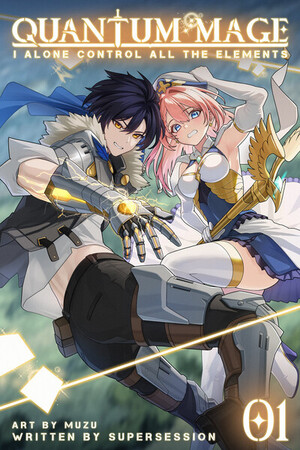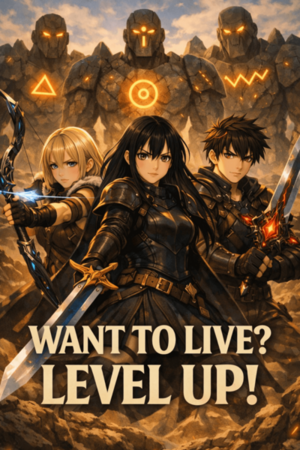Chapter 29:
Chapter 29 — The Wrath Answers
The Revenant: The Soul Breaker
The center of Honolulu became a grinding theater of war: tanks chewing through scorched asphalt, APCs disgorging men into alleys of shattered storefronts, and birds—what few remained—falling like black rain. Kohaku moved through it all as if carved from shadow, blade and pistol singing the same quiet song: forward.
Then the earth screamed.
A trembling ran through the concrete beneath their boots, a vibration that felt older than artillery. Soldiers staggered, rifles clattered, and a raw, animal sound rose from below—too vast to be a single beast. The soil split and from the wound a limb exploded upward: a taloned hand the size of a landing craft, knuckles crowned in obsidian. Scales like burnished iron and wings like torn night spilled from the rupture as a black, terrible head reared into the sky.
They had thought the Black Dragon dead. They had thought their victory in Beijing sealed an era. The thing that now towered over them was not that dragon; it was larger, fouler—older. Its hide reflected no light, only a hungry, viscous shadow.
“What is that?” someone shouted.
Agnes’ optical feeds danced. Her voice came clipped over the tactical channel even as she ran diagnostics with hands that had patched armor and tended wounds for years.
“Not an earthquake,” she said, flat with alarm. “Something enormous is surfacing. Something alive.”
The beast roared. The sound unfurled across the sky like tidal force. Kohaku felt it in his chest—a terrible, resonant truth. Around the world, radios hissed, towers failed, and a new chorus answered: the old Soul Beasts, the ones thought laid to rest, rose like a storm summoned by a conductor.
Ely’s face went pale for the first time Kohaku had seen. “We killed it in Beijing—how can it be back?” she demanded.
Agnes kept scanning, fingers trembling now. “This is different. Larger. Not the Black Dragon we faced; this is something built from its echo.”
The first volleys of rockets screamed up—rail cannons punching the air, missiles erupting like angry stars—but the creature barely flinched. Its hide drank explosions and spat them like sparks. With every cry it let loose, beasts across continents threw themselves into new life, surged from their graves, and poured toward every human center with a single, terrible hunger.
Men around Kohaku whispered the name they had fed into fear: Angra. Aaron Mustang’s voice carried over the net, brittle with commanded calm.
“Designation: Angra. All units: focus fire, target the heart if you can—everything else is diversion!”
Kohaku felt the cold press of sure death at his shoulders for the first time since the war had begun. A tightness settled in his throat—an awful, human admission of smallness.
He halted. He did not move.
Agnes, who had measured firepower and flesh with equal devotion, snapped. She stepped into his space and struck him—flat, with a slap meant to shave arrogance and silence. The noise cut through the foyer of battle like metal through fog.
“Open your eyes, Kohaku!” she shouted, raw with a weight that had been building behind quiet circuits for months. “Are you going to stand there and accept this? Do you think we followed you for you to give up at the sight of shadow? You are our anchor. If you drift, we all drown!”
Soldiers nearby held their breath. The world seemed to pause to hear her speak—every transmission tuning like an antenna to a single human voice.
“You are not the only tired one,” Agnes continued, softer and harder all at once. “You are not the only one who has bled. We all have. But we also all insist on standing. Call it stubbornness if you like. Call it hope. Whatever it is—hold onto it. Pick up your weapon. Lead.”
Kohaku looked up. For a beat the battlefield was only a handful of faces: Rika’s unreadable eyes, Eva’s clenched jaw, Vivian’s blade hand loosened, Seijiro’s weathered face strained with fear. Agnes’s chest heaved; this was not the machine he’d known yesterday. It was someone alive enough to hurt for the living.
He swallowed and then nodded.
“I will fight until my last breath,” he said, voice low but steady.
Around him, the others answered: “For tomorrow.” “For the children.” “For the ones who cannot fight.” The resolve rose like tidewater.
Then a voice—soft, impossible—slid through Kohaku’s mind like cool water.
“Because he is stronger than you, you despair?” Yolanda’s whisper. It sounded like wind in her tree, like the memory of snow in Meiyun’s village. “You falter and think this is the end?”
Kohaku’s jaw tightened. “Yolanda?” he breathed.
“I will tell you the weakness,” Yolanda said. “Aim for the chest—center heart. Strike at the red drum beneath the armor.”
Call it old myth or a fluke of intuition, Kohaku had never known Yolanda to lie. He felt the truth like heat behind his ribs: small, vital, mortal.
There was no time for ceremony. Kohaku moved to the railgun platform. Agnes handed him the buster with hands that shook but did not falter. The weapon’s core hummed like a heartbeat on the brink of storm—this device, a single-shot behemoth, the kind of answer that asked for a price as steep as victory.
He raised the Rail Gun Buster, sighting through the smoke and the squall of falling ash. The beast loomed, a living mountain of movement. At its chest a heartbeat pulsed—not the unconscious thud of organism, but a bright red cadence, a pendulum of theft and life wrapped in scales.
Kohaku pulled the trigger.
The world narrowed to motion: the buster’s coil spat a white line that burned through sky and shrapnel, a filament of forced physics that screamed across the distance and hammered into the beast’s breast.
BRRRT—SHHHOOOT—
The rail round struck true. Flesh and scale buckled as if the planet itself had been struck. The monster inhaled a sound like a thousand tombs opening and crumpled, talon and wing folding as it toppled sideways and slammed into the ocean. A fan of water erupted, towering over ships like a temporary wall.
For a breathless moment the world was stunned. Radios caught a hundred broken shouts. Men wept openly. Aaron’s voice—doctored, but not hidden—cracked over the line.
“Angra down! Angra down—confirm impact!” he cried, disbelief and hope tangling in his words.
On the decks of Saratoga, sailors cheered until their throats burned. In Seoul, in Beijing, in remote outposts the world exhaled in a thousand reliefs. Survivors dropped to their knees and prayed to small gods and nothing at all.
Kohaku sank to one knee, the railgun’s recoil a shipwreck in his arms. His vision frayed around the edges. Men and women who had followed him, who had called him commander and leader though he’d always refused the title wholly—crowded close. Vivian’s scowl softened into something like wary respect. Rika stood mute, a single tear tracking dust down her cheek.
Agnes reached for his face as if to check a pulse—then she did the only thing she could: she laughed, short and incredulous, and whispered, “You stubborn, infuriating—” then her laugh broke into a sob.
But joy never had time to bloom. Deep beneath the ocean, unseen and older than thought, the pulse fastened like a parasite stirred.
The monitor in Kohaku’s hand flickered with a tiny readout—heartbeat: slowed, not dead.
Yolanda’s voice again, soft and grave: “You have hit the drum, but you have not silenced the song. The wound will heal unless you seal the resonance. Be ready—the echo will answer.”
Across channels, the rerun of Angra’s fall stuttered into a dozen repeating loops—images of ruin and, for a moment, triumph. Flags were raised. Men embraced and then remembered the cost. Words were said into the radio like vows: We will finish this. Hold the line. Do not let the world fall again.
Kohaku stood. He felt every wound as though each one were his own; he felt every hand laid on him like a promise and a debt. The ocean where Angra had fallen steamed and fumed, and from the black water a small, scabbed trail of blood sliced the surface—an ugly reminder that victory was a door half-open, not a closed tomb.
He turned to his people, voice tired but carryable.
“This is not the end,” he said. “Prepare. We will finish what we began.”
And in the distance, under the red sky that would not yet die, the drums of the earth began to beat again.




Please sign in to leave a comment.